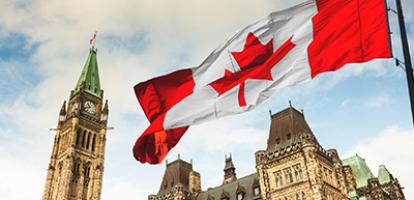"The bigger issue is ensuring that privacy is protected when data are shared and that open banking does not create regulatory loopholes or sources for financial instability."
The deadline for consultations on the merits and risks of “open banking” was Monday. So, we ask: Who’s afraid of open banking? Consumers? Maybe. The big five banks? Probably. Regulators? Definitely.
There are certainly reasons to pursue open banking, where new service providers can access customer data from the financial industry to offer more competitive and more innovative financial products. However, before charging ahead with open banking, there are (at least) three questions that must be asked and answered:
- Who should own the data?
- How can we make sure the benefits of open banking reach consumers?
- And how can regulators protect both the privacy of personal data and the stability of our financial system?
When people today make transactions or undertake financial decisions, lots of data are generated within payment systems and internal records of financial institutions. The status quo in Canada squarely puts banks as the owners of such data.
This puts your bank in an enviable position. First, data ownership creates a massive advantage as it provides critical customer information for product offerings. Consequently, banks can profit directly from exclusively using these data to charge consumer-specific prices, or from selling the data to interested third parties.
Open banking would presumably change this dynamic. It would put consumers back into a position where they decide when a provider can access their financial data from any institution that has collected them.
Once consumers regain ownership of their data, they themselves can profit, provided markets develop that function well enough for selling this information. Unfortunately, this is not a slam-dunk. One cannot price information upfront, so consumers need to rely on market forces to pass on any benefits from sharing their data.
This likely will depend on how data-sharing is implemented in the economy. Traditional intermediaries are unlikely to lose significant market share as they still generate the bulk of data. They may offer more competitive pricing, may compete with new products or buy out new providers in the medium term. And customer-oriented pricing may not always benefit all consumers all the time.
But these concerns are less of an issue once consumers really own their data and can freely decide how their data are being used by financial institutions. The bigger issue is ensuring that privacy is protected when data are shared and that open banking does not create regulatory loopholes or sources for financial instability.
Secure data standards, rules for appropriate data stewardship and a robust approval process for third-party providers accessing data are part of current open-banking discussions. However, a universal, digital ID system that improves safety and privacy of data is still missing in Canada, and so is a clear legal framework that would hold financial service providers responsible for inappropriate use of data without explicit consent by their customers.
But even with appropriate safeguards for privacy in place, there remains the challenge of open banking compromising financial stability. In Canada, financial services are not regulated by a single authority and regulation is fragmented between provincial and federal agencies. This makes any approach to open banking – especially one that includes moving beyond traditional banking to insurance, securities, etc. – extremely difficult. It will likely require the government go in stages, starting with third-party providers that are clearly in the “banking” space, which is federally regulated by the Office of the Superintendent of Financial Institutions. And it will force the government to work with the provinces to consolidate Canada’s regulatory landscape before taking any further steps.
The consultation document is right to start with the question of merits and risks. If the discussion about open banking achieves nothing else than putting people back in charge of their data – possibly even beyond financial services – much will have been achieved. If it also leads to a more streamlined regulatory framework in Canada, all the better. Open banking has the chance to set the stage for a more balanced financial services sector, one that recognizes the importance of both competition and stability. And more competitive financial services will ultimately benefit consumers.
Published in the Globe and Mail
Thorsten Koeppl is a scholar in financial services and monetary policy, C.D. Howe Institute, and professor and RBC Fellow, Queen’s University. Jeremy Kronick is associate director, research, at the C.D. Howe Institute.





